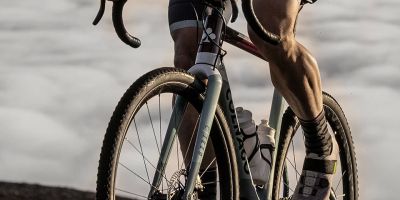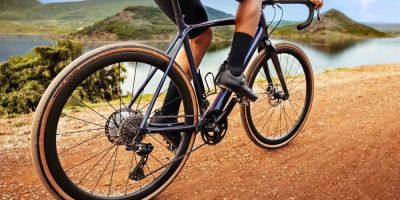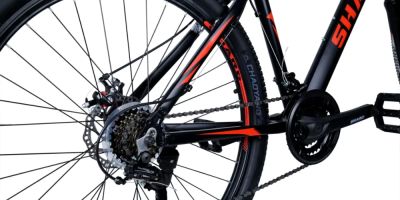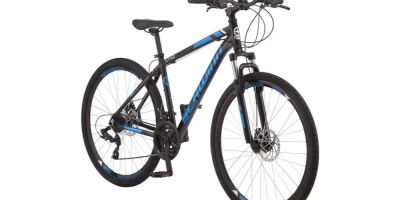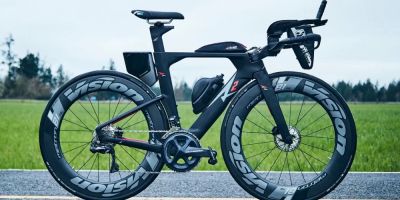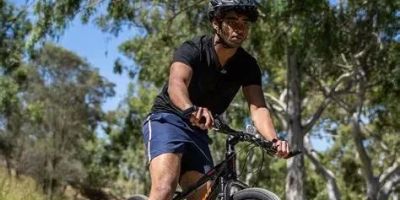Essential Tips for Staying Safe While Cycling in Traffic
1. Understanding the Importance of Cycling Safety
As a regular cyclist, I know how exhilarating it can be to ride through the streets, feeling the wind in your hair and enjoying the freedom that cycling brings. But, as with any activity on the road, cycling in traffic comes with risks. I’ve had my fair share of close calls, and over the years, I’ve learned that staying safe while cycling in traffic requires awareness, preparation, and a few key habits. In this article, I’ll share the strategies I’ve found most effective for cycling safely amidst cars, trucks, and other road hazards.
2. Know the Rules of the Road
One of the first things I learned as a cyclist in traffic was the importance of understanding traffic laws. It’s crucial to know that as a cyclist, you are considered a vehicle on the road, and you have the same rights and responsibilities as any other driver. This means that I must follow the same traffic signals, stop signs, and rules of the road. For example, I always make sure to signal my turns and yield the right of way when required. By abiding by the rules, not only do I keep myself safe, but I also help ensure that drivers respect my presence on the road.
1.1 Obey Traffic Signals and Signs
Whenever I'm cycling, I make it a point to stop at red lights and stop signs, just as a car would. Running red lights or skipping stop signs might seem like a quick shortcut, but it can lead to dangerous situations. Even if I don’t see a car coming, I always stop to check my surroundings before proceeding. This habit has saved me more times than I can count, preventing potential accidents by making sure I’m visible and predictable to drivers.
1.2 Use Bicycle Lanes When Available
Whenever possible, I always use dedicated bicycle lanes or bike paths. They’re designed to keep cyclists safe from motor traffic, reducing the chance of an accident. Even if the bike lane is a bit narrow or there’s some debris, I still prefer it to cycling on the road where cars and trucks are whizzing by. If there’s no bike lane available, I make sure to ride as far to the right of the lane as possible, without compromising my safety.
3. Gear Up for Safety
Before every ride, I make sure to check my gear and wear the appropriate safety equipment. Investing in the right gear has been one of the best decisions I made for my safety. For me, it’s not just about looking good on the bike—it's about making sure that I’m as safe as possible in traffic.
2.1 Wear a Helmet
Wearing a helmet is non-negotiable. It might seem like a simple piece of equipment, but it’s the one thing that could save your life in the event of a fall or collision. Every time I ride, I make sure my helmet fits properly and is securely fastened. I’ve had a few minor falls over the years, and without my helmet, they could have been much worse.
2.2 Reflective Gear and Lights
Visibility is one of the most important aspects of cycling safely, especially when cycling in traffic. When I’m riding during the day, I wear bright clothing to make myself more visible to drivers. However, at night or in low-light conditions, I make sure to wear reflective gear and have working lights on both the front and rear of my bike. This makes a huge difference in ensuring that drivers can see me from a distance, especially when approaching intersections or making turns.
4. Be Predictable and Visible
Another critical aspect of staying safe while cycling is making sure that I’m predictable and visible to drivers. By riding in a predictable manner, I reduce the chances of startling drivers or making sudden movements that could lead to accidents. Here are a few ways I maintain predictability on the road:
3.1 Signal Your Turns
Whenever I plan to turn, I always make sure to signal my intentions. Just as cars use turn signals to indicate a change in direction, I use hand signals to let others know where I’m going. I’ve found that drivers are much more likely to give me space if they know what I’m doing. A simple left or right hand signal goes a long way in reducing confusion on the road.
3.2 Avoid Riding in Blind Spots
One of the biggest dangers for cyclists is riding in a driver’s blind spot. This is especially true when riding next to larger vehicles like trucks or buses. I always make it a point to position myself where I’m visible to the driver—usually slightly ahead of the vehicle or on the far left or right, depending on the situation. Staying out of blind spots gives me more time to react if the driver doesn’t see me and makes it less likely that I’ll be cut off during turns.
3.3 Stay Alert and Avoid Distractions
When cycling in traffic, I always stay focused on the road ahead. Avoiding distractions like listening to music with headphones or using a phone ensures that I’m fully aware of my surroundings. I’ve found that even a momentary lapse in attention can be dangerous when riding near fast-moving vehicles. Instead, I focus on observing the behavior of drivers, paying attention to traffic signals, and being ready to react to any potential hazards.
5. Handling Emergency Situations
Despite all the precautions I take, there’s always the possibility of something unexpected happening. Over the years, I’ve learned how to handle emergency situations effectively and minimize risk when things go wrong. Here are a few of the strategies I use:
4.1 Know How to Brake Effectively
One of the most important skills for any cyclist is knowing how to brake properly. I’ve practiced emergency braking in controlled environments, which has helped me stay calm and react quickly when I need to stop suddenly. It’s essential to apply both brakes evenly and gradually, especially when riding at high speeds, to avoid skidding or losing control.
4.2 Keep a Safe Distance from Vehicles
When cycling in traffic, I always try to maintain a safe distance from vehicles around me. This gives me more time to react if a car suddenly stops or makes an unexpected move. I also avoid tailgating other cyclists, giving everyone more room to maneuver. Keeping a safe distance is one of the best ways to prevent accidents, as it allows me to maintain control of my bike at all times.
6. Plan Your Route Carefully
One of the ways I reduce the risks of cycling in traffic is by planning my route ahead of time. I prefer to cycle on roads with less traffic or those that have dedicated bike lanes. Many cities have cycling maps or apps that show safer routes for cyclists. By doing some research and selecting a route with fewer hazards, I’m able to enjoy my ride without the added stress of busy streets and heavy traffic.
If you're looking for more tips on staying safe while cycling or need the perfect bike for your rides, be sure to check out Healthy Cycling for some great recommendations and services. Cycling is an amazing way to get around, and with the right precautions, it can be both safe and fun!

